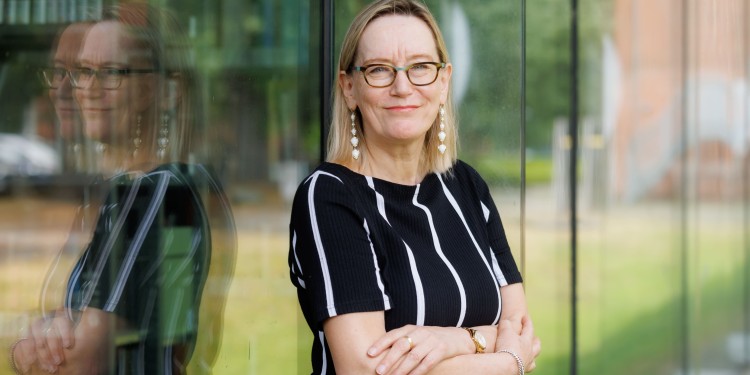
Genuine impact from Finland
The extent to which research can be present and attract a high degree of attention in our everyday lives was demonstrated not least in the search for effective vaccines against the Corona virus. Other sciences, too – although non-specialists can barely understand the details – likewise cause a stir due to their relevance for us all: meat from laboratories, self-driving cars or the impact of climate change. Or they appeal to human curiosity about things that can barely be imagined – for example, topics relating to outer space and the question of life on Mars.
Most researchers, especially those undertaking basic research, are less visible. Awards are an important recognition of their work – which was the case with information systems specialist Prof. Sirkka Jarvenpaa, who just recently received a Humboldt Award. She comes from Finland, is engaged in research and teaching at the University of Texas, and was proposed by Prof. Stefan Klein from the Department of Information Systems at the University of Münster. This means that Klein, Vice-Dean of International Affairs at the School of Business and Economics, is Jarvenpaa’s host. Besides providing 60,000 euros, the award offers the opportunity to do research at the host university for a period of up to twelve months. Jarvenpaa arrived at the Leonardo Campus in June for a few weeks as a Humboldt guest.
Some of the things that Sirkka Jarvenpaa, 63, researches into are the role played by trust in cyberspace – for example, in global virtual teams – or consumers’ trust in online shops, as well as the strategic deployment of information technologies. "What the award shows me," she says, "is that my work has an impact on my special field – and hopefully beyond the academic world too, on industry and political organisations. This impact is often difficult to recognise in basic research – or is only seen years later. The award means that there is a genuine impact."
Jarvenpaa, who comes from Harjunpaa in Finland, has had contacts with Münster University for some years now. She paid several visits to her Münster colleagues in the Department of Organisational and Business Psychology, collaborating in particular with Prof. Guido Hertel on questions relating to research into the subject of trust. Stefan Klein and Sirkka Jarvenpaa got to know and appreciate each other through their work in editing an international specialist journal.
"Sirkka is a dedicated, acknowledged scientist in her field of research. She also studies ethical issues, takes a critical look at current developments, and addresses these issues in the academic community," says Klein. For example, she criticised the one-sided focus on essays in highly rated journals as a criterion for the success of scientific research. From an academic point of view, says Klein, Jarvenpaa is the right candidate for a nomination. He also emphasises that he is delighted that he was able to propose for the award a woman combining the roles of researcher and mother. "It is an historical anomaly that women are so underrepresented today in the field of information systems," he says. "After all, they helped to build up this branch of science. It makes the award for Sirkka all the more gratifying."
Sirkka Jarvenpaa’s first official visit to the University of Münster is for an exchange of views on future projects – whether in research into the subject of trust, or into the social effects of entrepreneurship. "The Humboldt Research Award motivates me to push on with my research in these areas," she says, "because it shows that other people also believe that this work is important. And ultimately, we all want to achieve something that is significant."
Author: Hanna Dieckmann
This article first appeared in the University newspaper "wissen|leben”, No. 5, 6th of July 2022.
